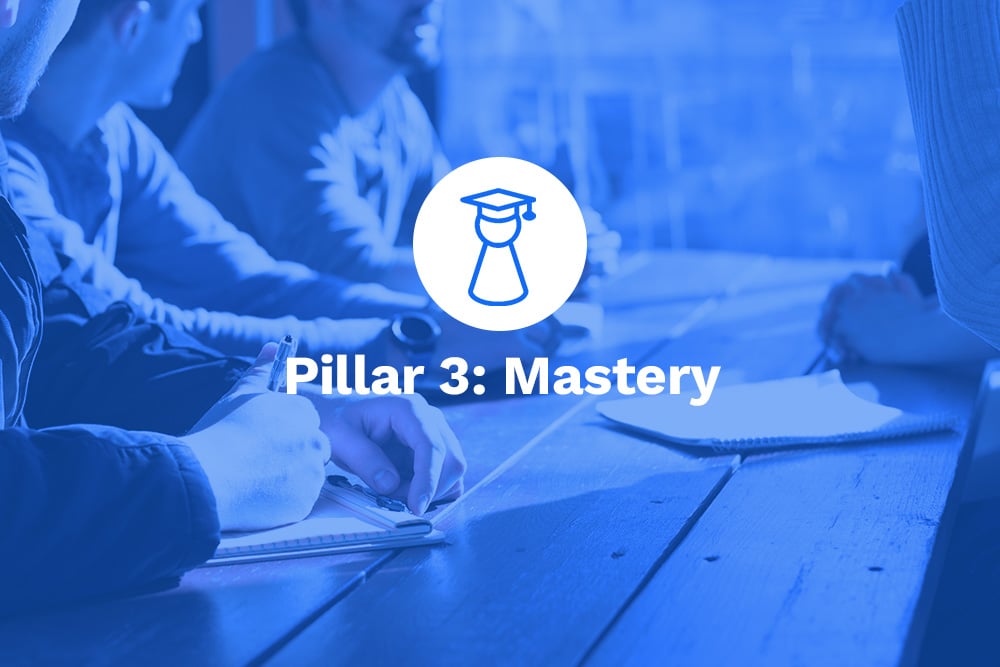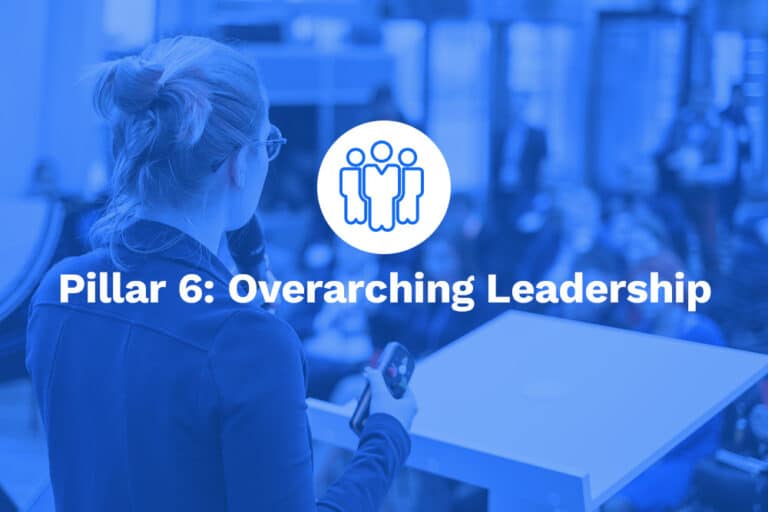Pillar 3 – Mastery: Mentoring
Competency Overview
At this stage of your career, you are seen as a go-to person. This can be as an individual contributor or a people leader. Mentoring involves being a trusted advisor, establishing best practices, giving recommendations, motivating others to stretch outside their comfort zones, and building strong relationships with team members so coaching is well received. At Leader Loop, we recognize that effective mentoring is crucial for fostering growth and development within the organization, both for the mentee and the mentor.
Leveling Up
Developing mentoring skills sets you apart as a leader who not only excels in their own role but also lifts others. Being a mentor allows you to share your knowledge and experience, contributing to the growth of your team and the overall success of the organization. It positions you as a key influencer and a reliable resource, enhancing your professional reputation and expanding your leadership capabilities. Mentoring can lead to greater fulfillment in your career as you see your mentees succeed and grow under your guidance.
Why It Matters
- Knowledge Sharing: Mentoring facilitates the transfer of knowledge and best practices, ensuring that valuable insights and skills are passed down.
- Team Development: Effective mentoring helps in developing team members, preparing them for higher responsibilities and enhancing their performance.
- Motivation: Motivating others to step outside their comfort zones drives innovation, growth, and personal development.
- Relationship Building: Strong mentoring relationships foster a supportive and collaborative work environment, enhancing overall team cohesion.
Competency in Action
- Looked to for Advice from Other Team Members
- Common Pitfalls to Avoid: Being unapproachable, not actively listening, and providing vague or unhelpful advice can diminish your effectiveness as a mentor.
- Benefits: Being a trusted advisor ensures that team members feel comfortable seeking your guidance, fostering a culture of continuous learning and support.
- Establishes Best Practices
- Common Pitfalls to Avoid: Relying on outdated methods, not adapting to new trends, and failing to document and share best practices can hinder team growth.
- Benefits: Establishing and sharing best practices ensures consistency, efficiency, and high standards across the team, leading to improved performance and outcomes.
- Gives Recommendations
- Common Pitfalls to Avoid: Offering generic advice, not tailoring recommendations to individual needs, and being overly critical can reduce the impact of your guidance.
- Benefits: Providing thoughtful and tailored recommendations helps team members navigate challenges effectively and enhances their development.
- Motivates Others to Stretch Outside Their Comfort Zone
- Common Pitfalls to Avoid: Not encouraging risk-taking, failing to support team members in new challenges, and discouraging innovative thinking can limit growth.
- Benefits: Motivating others to step outside their comfort zones fosters innovation, resilience, and personal growth, driving the team’s overall success.
- Builds Relationships with Team Members So Coaching Is Well Received
- Common Pitfalls to Avoid: Being detached, not investing time in relationship-building, and providing feedback without understanding individual contexts can lead to resistance.
- Benefits: Building strong relationships ensures that your coaching is well received and acted upon, creating a positive and productive work environment.
How to Enhance This Competency
- Be Approachable: Make yourself available and approachable to team members. Encourage open communication and create a safe space for sharing ideas and concerns.
- Stay Current: Continuously update your knowledge and skills. Stay informed about industry trends and best practices to provide relevant and up-to-date guidance.
- Listen Actively: Practice active listening to understand the needs and challenges of your team members. Tailor your advice and recommendations to their specific situations.
- Encourage Growth: Support your team members in taking on new challenges. Provide opportunities for them to stretch their skills and explore new areas.
- Build Trust: Invest time in building trust and rapport with your team members. Show genuine interest in their development and well-being to foster strong mentoring relationships.
Unlocking Potential
- Increased Influence: Mastering mentoring skills increases your influence within the organization, enabling you to shape the development of your team and drive overall success.
- Career Fulfillment: Seeing your mentees succeed and grow under your guidance can be deeply fulfilling and rewarding, adding a new dimension to your career.
- Leadership Growth: Developing strong mentoring skills prepares you for higher leadership roles, as it demonstrates your ability to develop and nurture talent.
By developing and honing the competency of Mentoring, you ensure that you can effectively guide and support your team members, fostering a culture of continuous learning and growth. This competency is essential for mastering your skills and evolving in your career, preparing you for leadership positions where nurturing talent and driving team success are crucial.
About Leader Loop: Leader Loop crafts actionable, competency-focused articles to accelerate your career growth. Our expert-written content provides practical strategies for leadership, team management, and professional development. Whether you’re a seasoned manager or an ambitious individual contributor, our articles deliver the insights you need to excel in today’s workplace.




